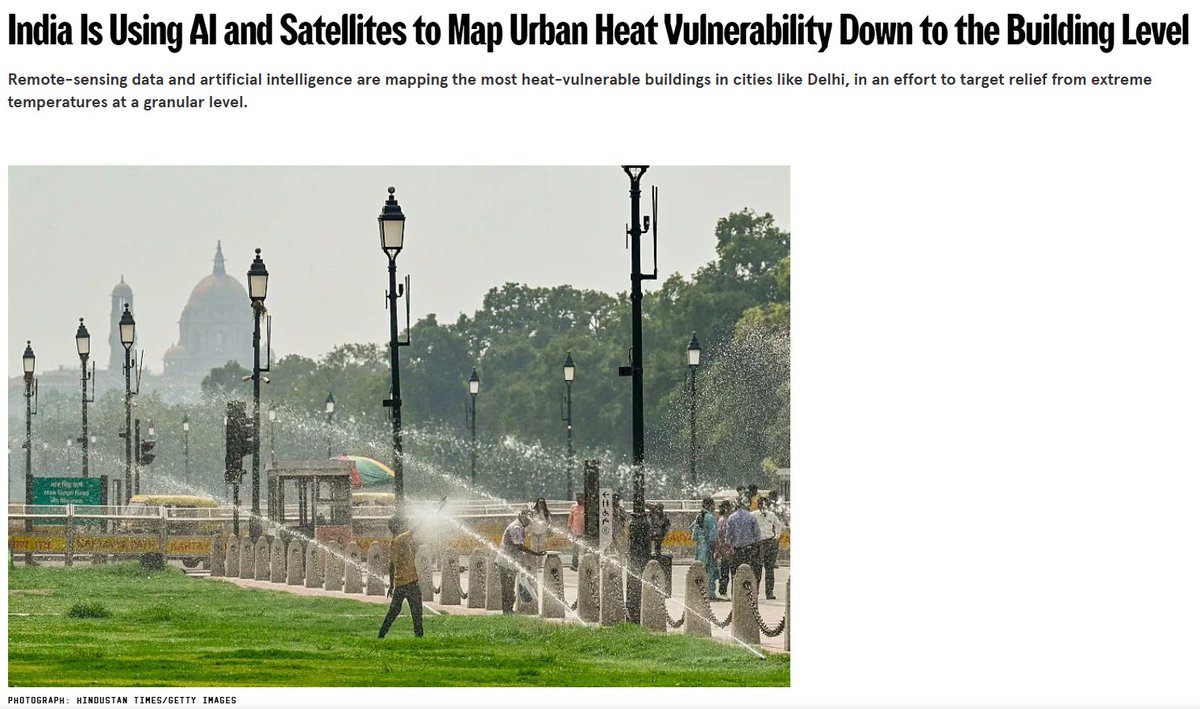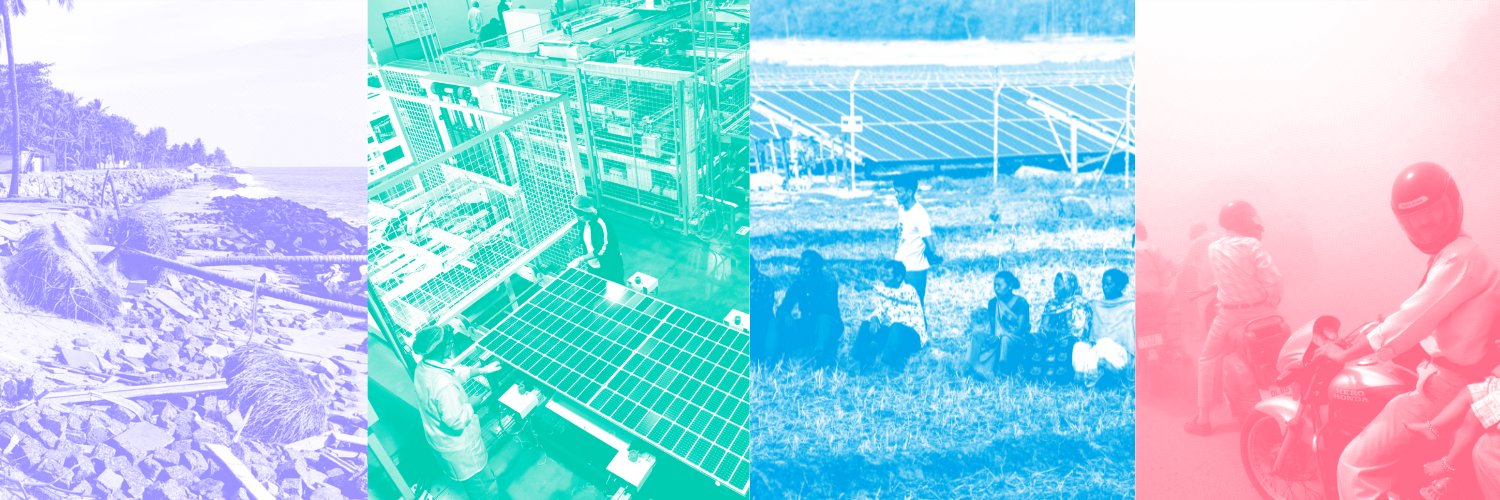
Sustainable Futures Collaborative
@SFC_India
Independent research organisation analysing frontier issues in climate change, energy, and environment. Sign up for updates: http://eepurl.com/iDQDtA
NEW PUBLICATION: Our report assesses India’s readiness for the extreme #heat of a +1.5 degree world. We examine the implementation of extreme heat policies in 9 major Indian cities - Bengaluru, Delhi, Faridabad, Gwalior, Kota, Ludhiana, Meerut, Mumbai, and Surat - which are among…

Arunesh Karkun is a Research Lead in the Environmental Governance and Policy team. His work focuses on researching air quality governance, and policies on electric mobility and climate change. He also works on understanding emergent environmental governance issues such as…
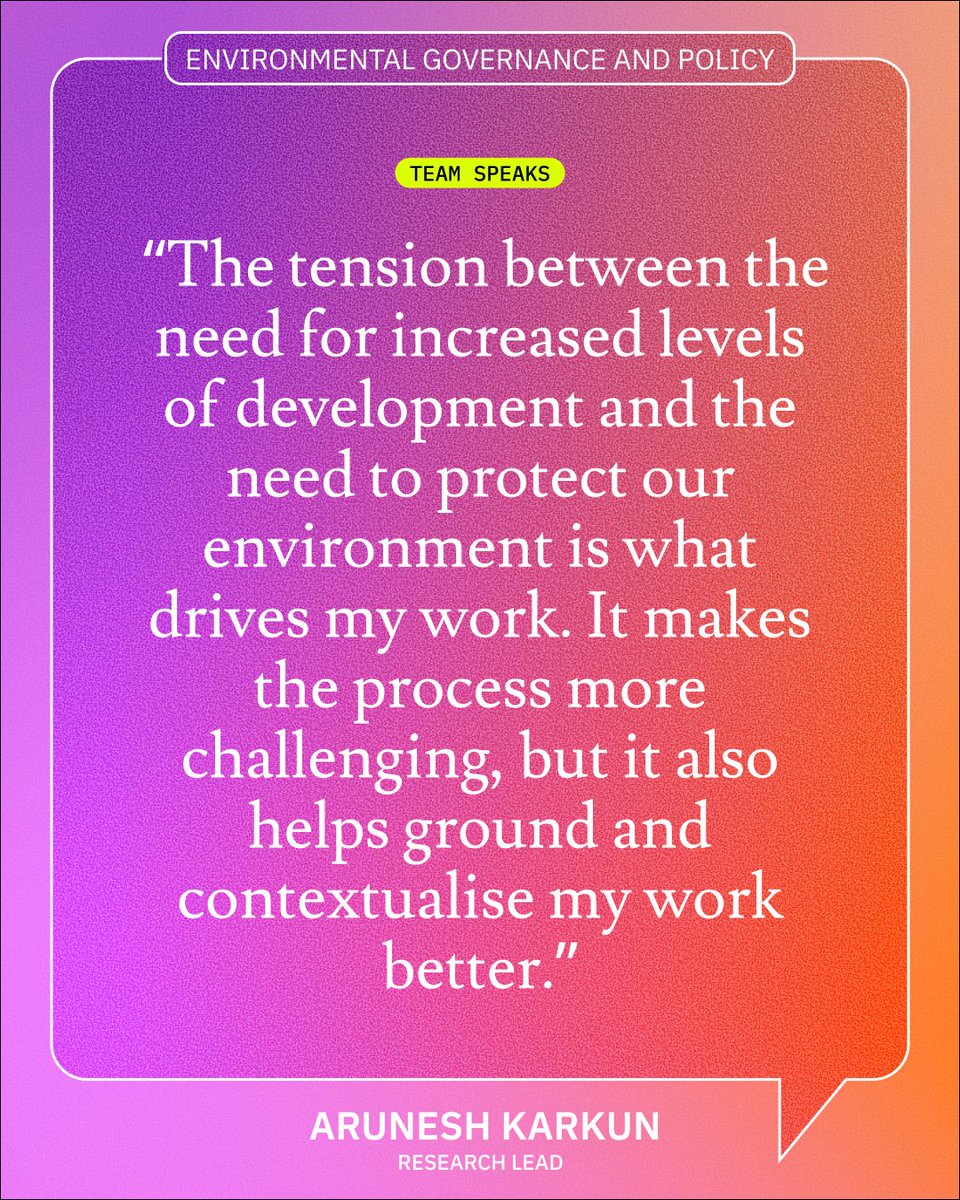
In our March 2025 report on the implementation of heat action plans in nine Indian cities, we found that long-term heat mitigation measures, where present, are often ill-targeted and suffer from poor follow-through due to weak inter-departmental coordination. One of the unique…
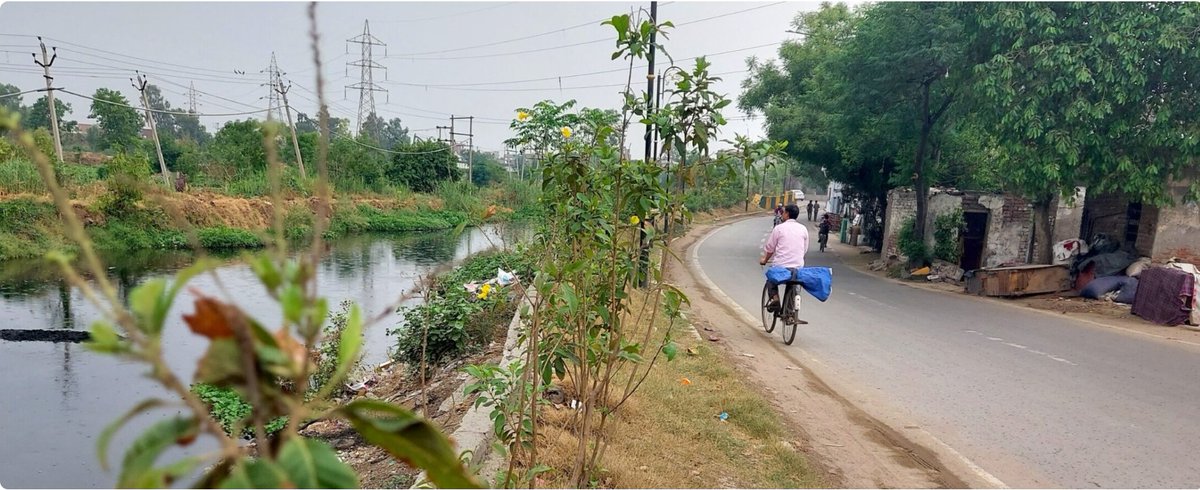
The Union Cabinet’s recent approval of the ₹1 lakh crore Research, Development, and Innovation (RDI) Scheme marks a potentially transformative moment for India’s technology and industrial policy. But to enhance the effectiveness of the scheme, Kashmeera Patel, @AmanJSrivastava…
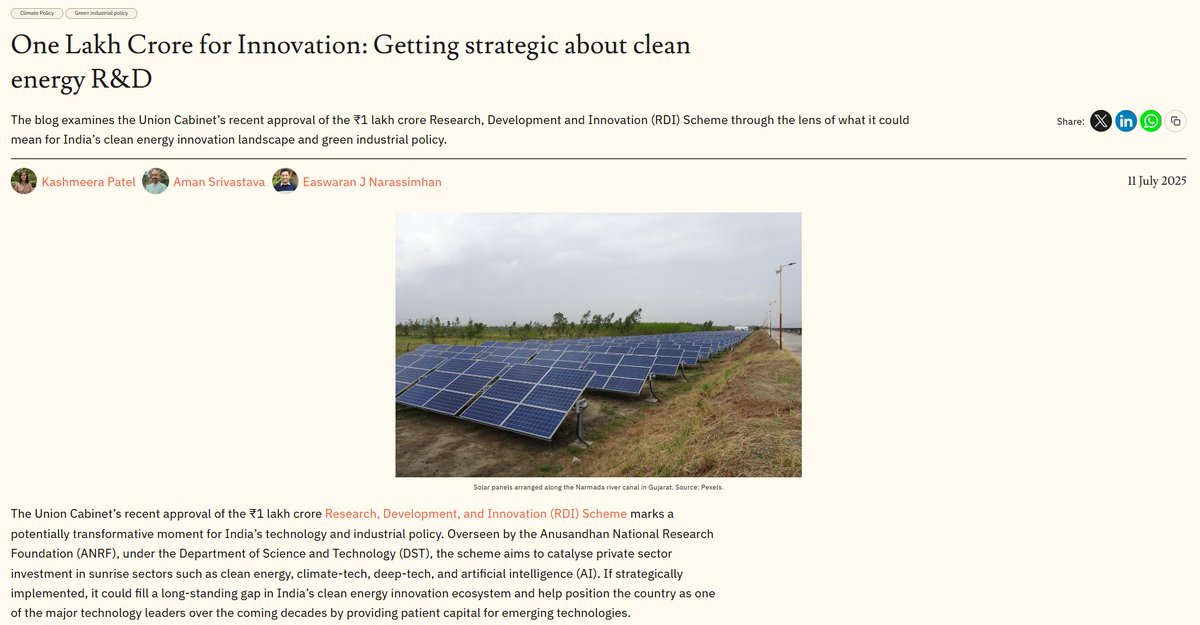
NEW BLOG: “The RDI Scheme is an opportunity to build the foundation for a globally competitive, low-carbon economy. However, its success will depend on strategic clarity, capable institutions, and a clear link between innovation and deployment” - Kashmeera Patel, @AmanJSrivastava…
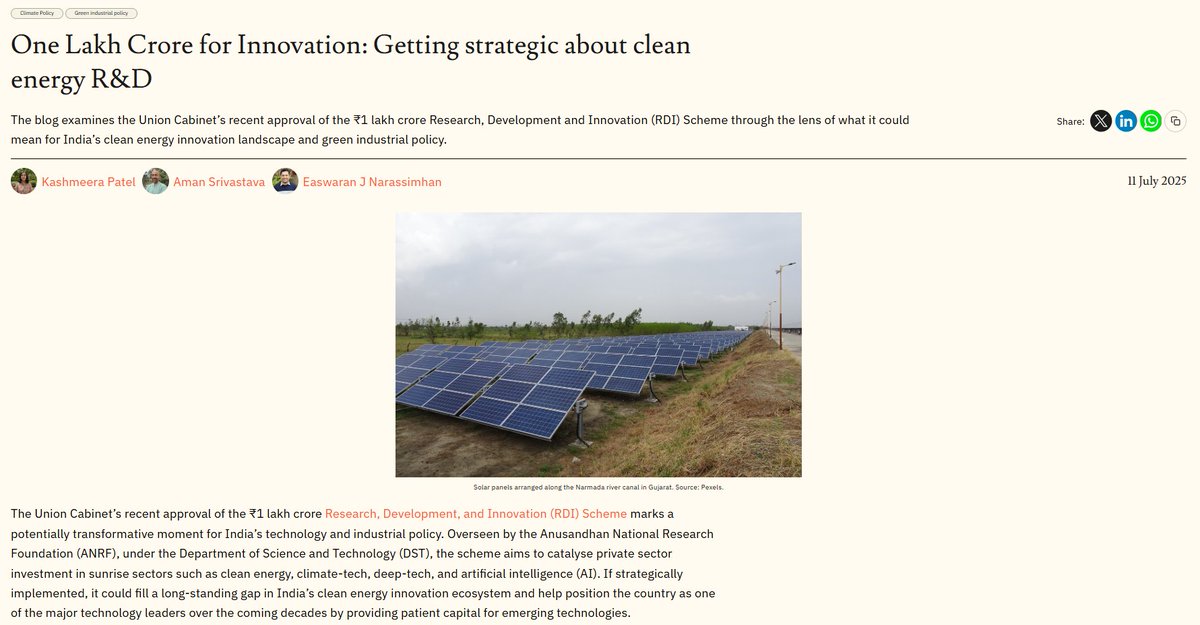
“An inadequate understanding of heat’s complex, pervasive, and evolving nature shapes how the Indian bureaucracy currently responds to it: as a static, seasonal, and contained risk. As a result, heat actions are skewed towards short term reactionary measures, rather than…
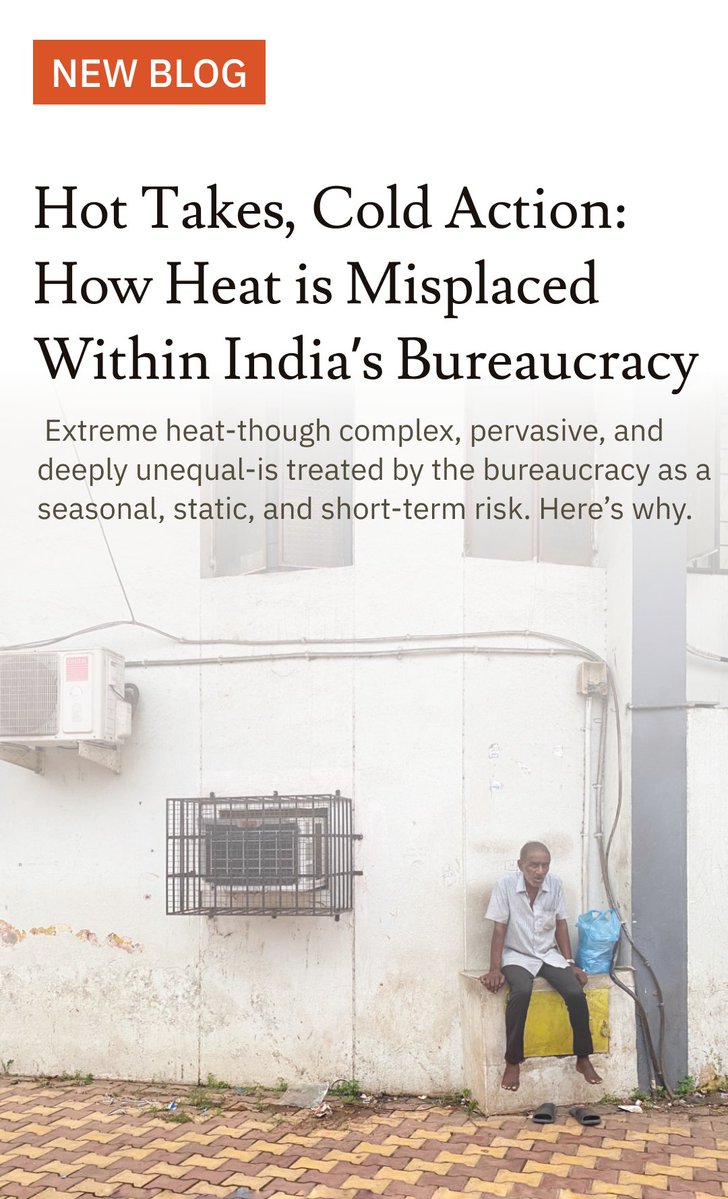
NEW BLOG: #Heatwaves are now one of India’s deadliest natural hazards, yet their true impact is frequently masked by bureaucratic oversight and a fundamental misunderstanding of the threat. @EscanditaTewari unpacks why extreme heat is misplaced in Indian governance and argues for…
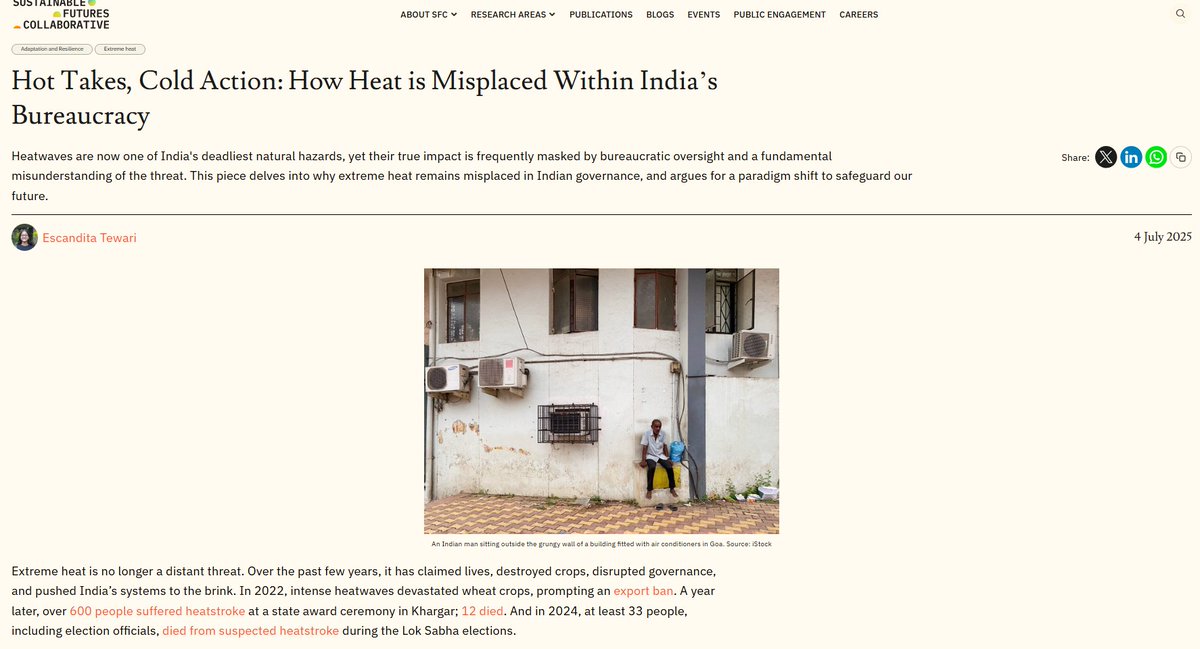
“A lot of actions (around heat) which are currently happening are very reactionary top-down guidelines which basically means that you have a very hyperlocal problem but you have a guideline coming from the top which tries to solve for everything and everyone, which does not fix…
#OurTeamSpeaks: Shubhranshu Suman is a Research Associate in the Energy Transitions team at SFC. His research focuses on advancing inclusive and equitable energy transitions. His interests also include the evolving fields of climate finance and GHG emissions accounting.…

“Part of the problem is that heat action plans aren’t legally binding. Heat waves aren’t recognised as state-specific disasters in most parts of India. Right now, only about eight states have formally declared heat waves as disasters. This means that local authorities aren’t…
